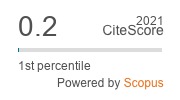Comparison of Machine Learning Models to Predict Heart Attack
DOI:
https://doi.org/10.17762/msea.v72i1.2266Abstract
As According to a report from the World Health Organization (WHO), the number of cases of cardiac arrest and heart attacks is increasing exponentially each year. The mortality rate due to heart attacks exceeds 18 million people per year worldwide. The main goal of this work is to develop machine learning models that can predict heart disease with greater accuracy. In this work, there are total five different supervised machine learning algorithms implemented, namely Random Forest (RF), SVM, Logistic Regression, Decision Tree, and KNN, in order to achieve this objective. Among the algorithms we have implemented, Random Forest performed the best, achieving an accuracy of 90.16%, followed by Logistic Regression with an accuracy of 85.25%. The KNN algorithm yielded the lowest accuracy at 67.21%. In addition to accuracy, we also calculated two important parameters, precision and recall, from the confusion matrix. It is important to note that accuracy in machine learning models should not be too high, as this may indicate overfitting. Machine learning models with an accuracy of more than 90% are considered to be reliable.




